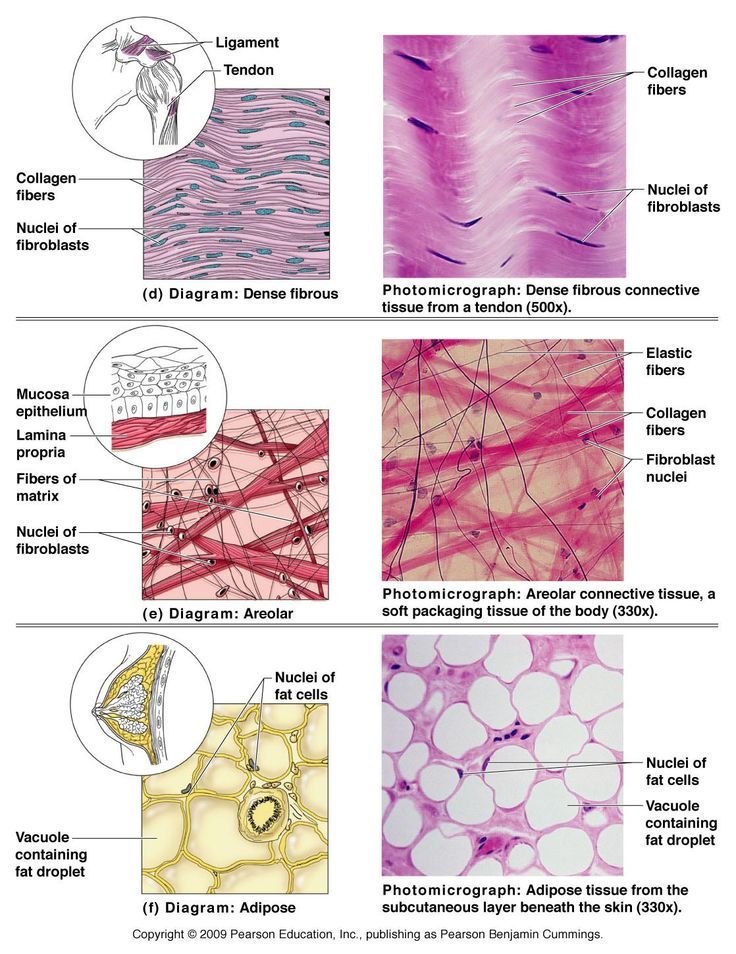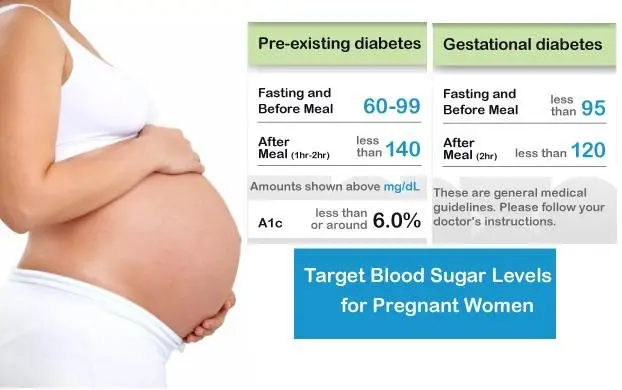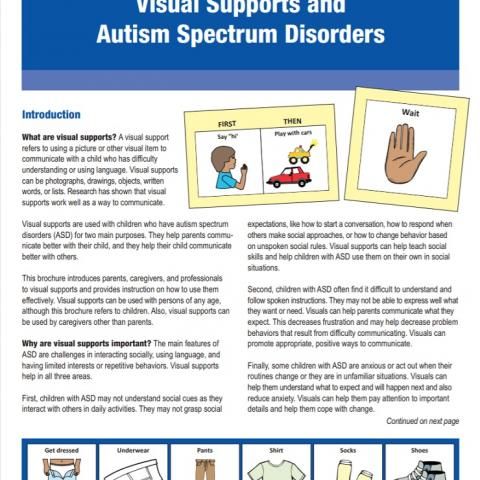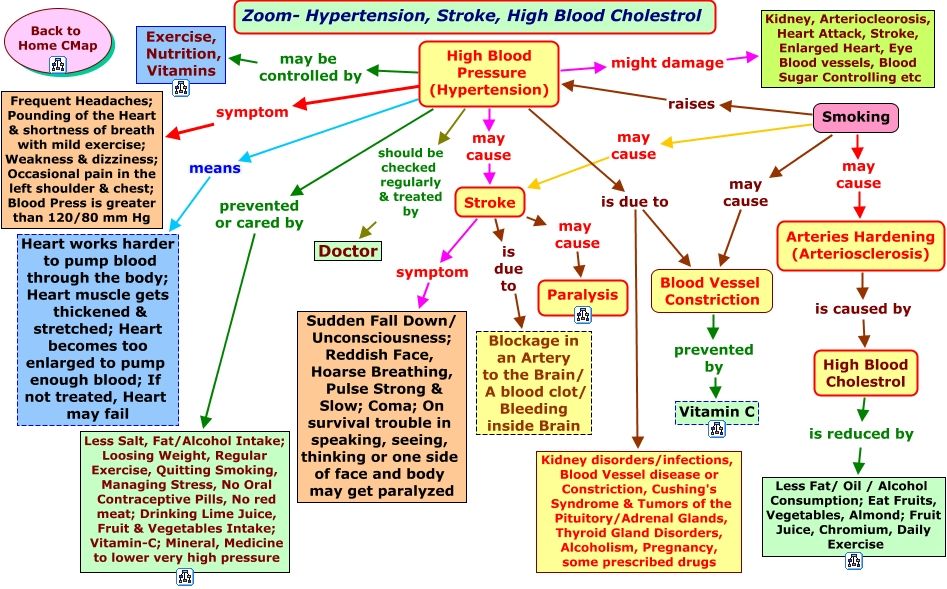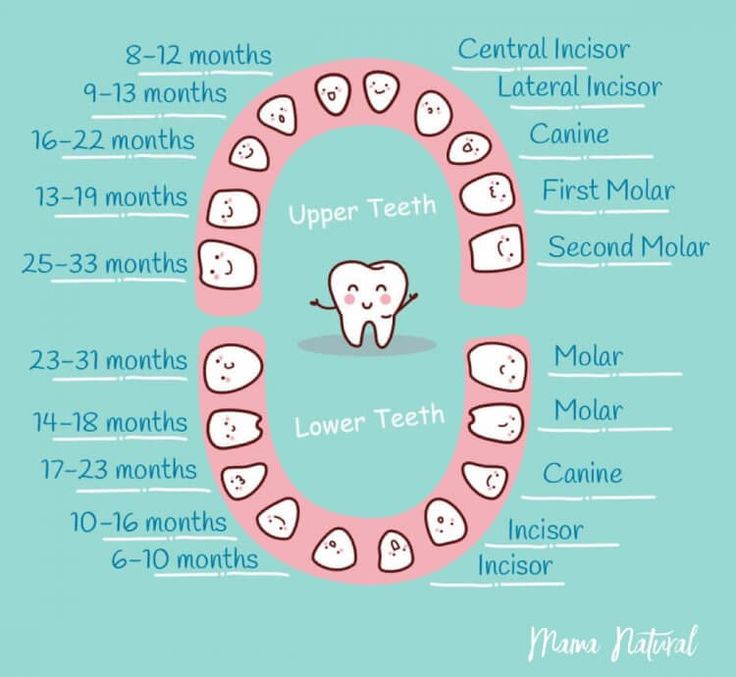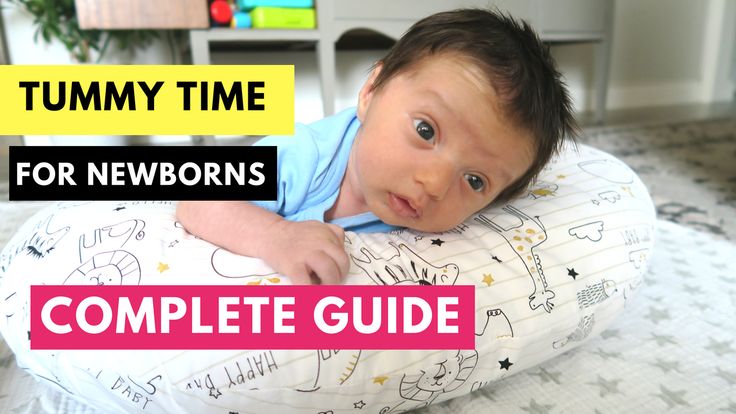Physically disabled children
Caring for children with disabilities: Mini Parenting Master Class
Transcript of “Children with disabilities: Mini Parenting Master Class” video
It’s normal to feel distressed when you’re told that your child has a disability, but here’s some useful advice to help your child to reach their full potential.
Hi, I’m Professor Maurine Samms-Vaughan and this is my Mini Parenting Master Class on children with disabilities.
As a parent, what can I do to support my child with a disability? Why is it important to focus on a child’s abilities?
Every child with a disability has strengths. These may be in doing artwork, in their personality, or in their motor skills. Every child has a strength. It’s more important for us to focus on what children can do, their abilities, rather than their disability. We can use children’s abilities to assist the areas that they have most challenges with.
How can I communicate with my child with a disability and how do I know when he/she wants to communicate with me?
Some children with disabilities will be able to speak with you. Others will not be able to speak. But they do communicate, even though they don’t speak. For example, when a newborn baby comes into a family that baby communicates without speaking. You learn the baby’s likes and dislikes by whether they smile, or laugh, or whether they cry. The same occurs with children with disabilities who can’t speak. They tell you what they like by smiling or laughing, and they tell you what they don’t like by crying or making an upset face.
What can I do in my day-to-day to make sure I’m stimulating my child and his/her brain development?
Children are stimulated by everything in their environment: by the sounds, by the interactions, by your smile. So, if your child with a disability is around you, you should make sure that you spend time talking with them, explaining in simple language what it is you’re doing, smiling with them, telling them all about their environment, making noises around them so they can respond to noises.
Everything that you do, as you are moving about the house, as you are doing your housework, involve and include your child in it.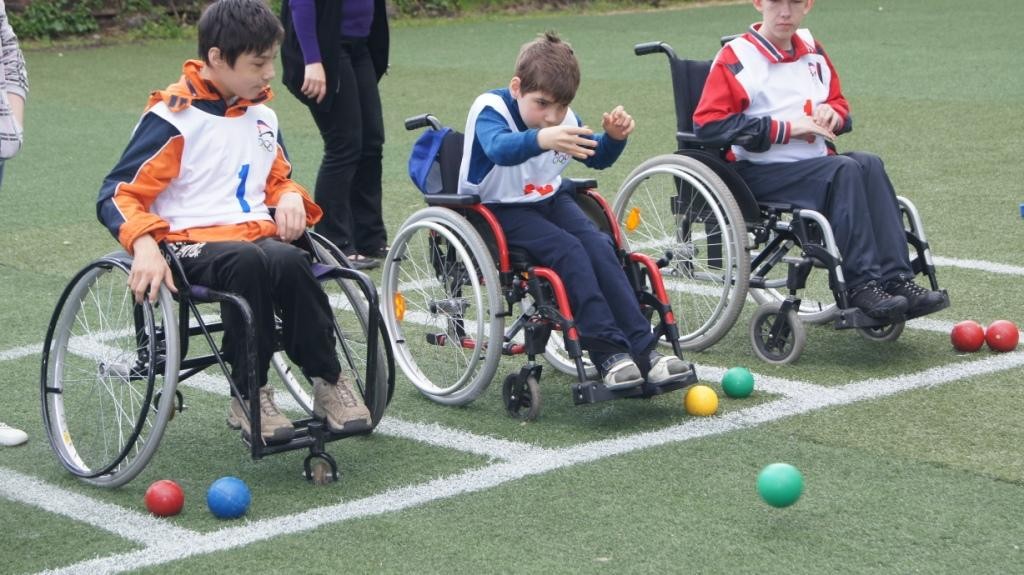 Move your child into the room in which you are working. Tell them what you are doing: you are washing the dishes, you’re dipping the dishes in the water. Tell them exactly what you are doing. All of that will stimulate them.
Move your child into the room in which you are working. Tell them what you are doing: you are washing the dishes, you’re dipping the dishes in the water. Tell them exactly what you are doing. All of that will stimulate them.
You can also stimulate them by directly playing with them, by making little toys in the home, putting stones in a bottle and shaking it, by waving ribbons in front of their eyes, different coloured ribbons. There are many things that you can do with just things around your house.
Can I breastfeed my child if he/she has a disability?
Breastfeeding is really important for all children, but is especially important for children with disabilities. Breastfeeding is really important for children’s growth, children’s nutrition, and children’s brain development. Many children with disabilities are actually able to breastfeed, only a few are not able to breastfeed. And those who can’t, can be fed expressed breastmilk, because breastmilk is really the best.
Why are the early years of every child’s life so critical?
The early years of every child, whether they have a disability or not, are critical because when we stimulate the brain during these early years we are ensuring that the brain develops to its full potential. We are making sure that children have the best development that they can have and this happens for children with disabilities and children without disabilities.
How do I play with my child with a disability?
Children with disabilities enjoy being played with just like any other child. They enjoy you reading to them, showing them pictures, tickling them, hugging them, cuddling them. They respond to you with laughter and smiling. If they don’t like a particular play that you are doing, they will tell you. They will stop laughing, they’ll stop smiling. Try something else. You will find something because you know them best.
If I don’t have time to play or money to afford toys, what can I do?
If you don’t have a lot of time to play with your child, there may be other family members in your home who will be able to play with your child with a disability.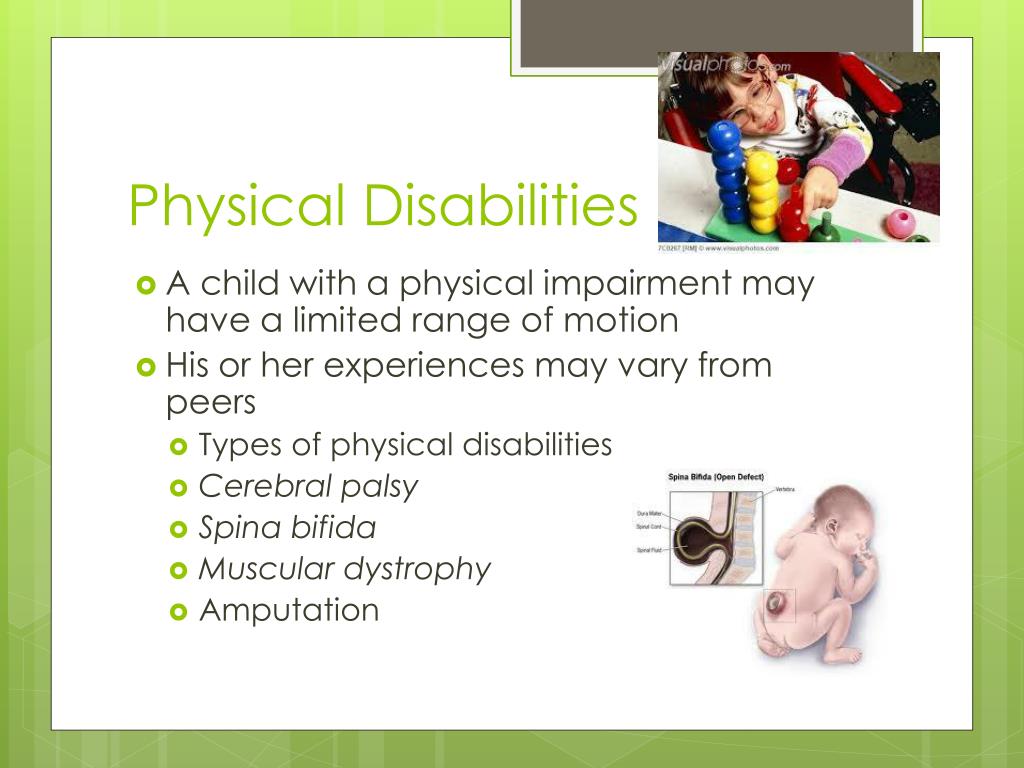 Brothers and sisters are really great around children with disabilities. They stimulate them because they talk to them a lot and they play with them. They don’t seem to be concerned about whether a sibling has a disability. They play with them just like anyone else.
Brothers and sisters are really great around children with disabilities. They stimulate them because they talk to them a lot and they play with them. They don’t seem to be concerned about whether a sibling has a disability. They play with them just like anyone else.
What is your advice to parents who suspect that their child has a disability?
If you have a concern that your child has a disability, go to your nearest health provider and let them know your concerns. Some concerns may turn out not to be a problem at all, but some may, and your child may be identified as having a disability.
It’s just as important to provide children with disabilities with a loving environment. Children who are shown warmth and love grow up to be loving, warm persons. A child with a disability who is shown warmth and love will grow up to be an adult who may have a disability, but who is a wonderful person to be around.
Maureen Samms-Vaughan is Professor of Child Health, Child Development and Behavior at the University of West Indies in Jamaica.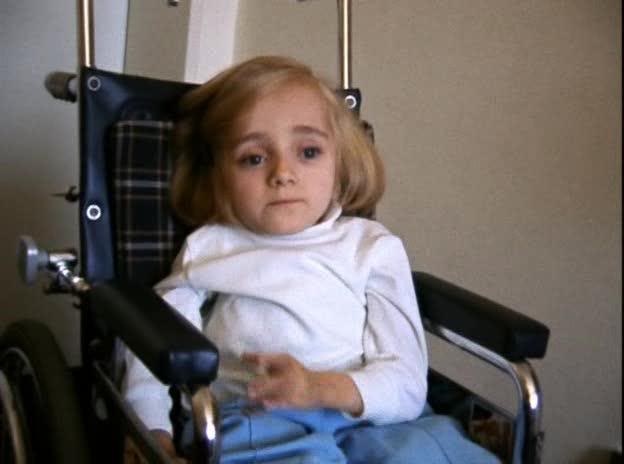 She is an advocate for vulnerable children, particularly children with disabilities and those impacted by violence, and has published significant research in these areas.
She is an advocate for vulnerable children, particularly children with disabilities and those impacted by violence, and has published significant research in these areas.
What is a childhood disability?
What is a childhood disability? | Pregnancy Birth and Baby beginning of content4-minute read
Listen
What is disability?
A person with disability may be unable to perform certain functions as well as most other people. The disability may be physical; it may involve senses, including seeing or hearing; it may involve finding it difficult or impossible to think clearly; or it may involve mental health. Many people with a disability have full abilities in other areas.
Disability is common — about 1 in 50 children has a disability. There are many types of disability, including disabilities that children are born with, disabilities that develop after birth, and disabilities that are caused by injury.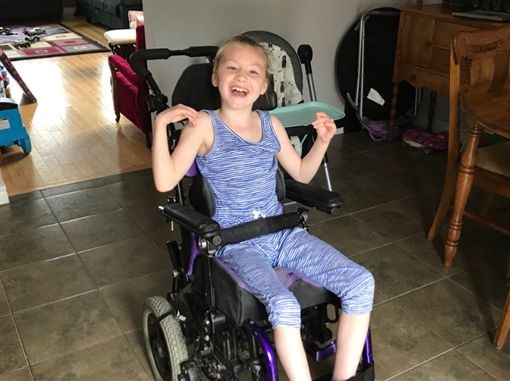
Children with disability may have special needs and require early intervention and as much support as possible.
Common disabilities such as autism, Down syndrome and intellectual and physical disabilities create challenges with thinking, behaviour and skill development.
Childhood disability
Disability in childhood can have a lifelong impact on a person’s physical, mental and emotional health, as well as their social situation. Children with disability may have special needs, particularly regarding health and education, and may need to negotiate significant social and environmental barriers in order to fully participate in everyday life.
Congenital disorders
A congenital disorder is a condition that is present from birth. It can be inherited or caused by environmental factors. Common congenital disorders include:
- intellectual disability — where a child takes longer to learn than others and may experience delays in their development
- Down syndrome (Trisomy 21) — a common genetic condition that causes intellectual disability
- cerebral palsy — a physical disability that makes it hard for a child to control how their body moves
- Fragile X syndrome — an inherited condition that causes intellectual disability and learning and behaviour problems
Find out more here about congenital disorders.
Developed after birth
Some disabilities develop after birth. These include hearing problems, heart conditions, and blood, metabolism and hormone disorders. Detecting these problems soon after birth can prevent them from becoming more serious physical, intellectual, visual or hearing disabilities.
Autism
Autism is a disability that is now known by the term ‘autism spectrum disorder’.
Children aren’t usually diagnosed with autism until after they have reached 2 years of age. Although its causes are not fully understood, autism has been linked to genetic factors.
Caused by injury
Physical, mental and behavioural disabilities can occur when a trauma or injury (such as falling from a height) affects the brain. Other causes of acquired brain injury include loss of oxygen (for example, due to asthma or after a near- drowning), infection (such as meningitis) and stroke.
Severe physical injuries, such as spinal cord injury or losing an arm or leg in an accident, can cause physical disability.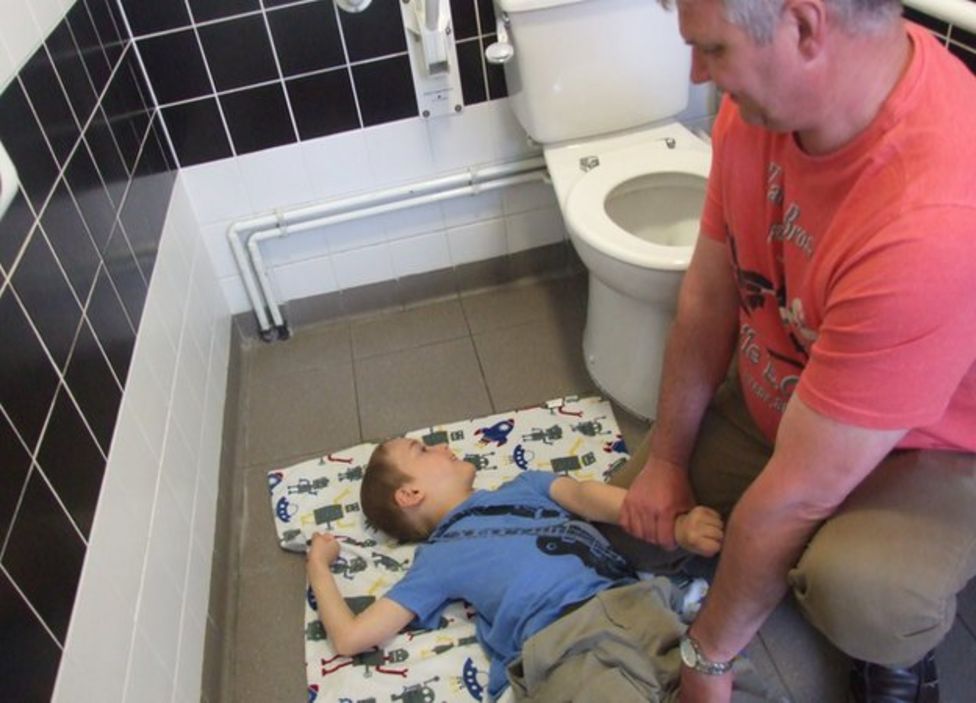
Developmental delay or disability?
Disabilities are different from developmental delays. A child with a developmental delay is developing skills more slowly than most other children. This does not mean they have disability.
Not all children develop at the same rate, so some children naturally take longer to develop than others. Developmental delays can be short or long-term and can happen in any area of your child’s development.
In contrast, disabilities such as cerebral palsy, autism, some speech disorders, hearing impairment and intellectual disability will last for your child’s whole life. They will have permanent delays in the area of their disability.
Sources:
Raising Children Network (Intellectual disability), Raising Children Network (Down syndrome), Raising Children Network (Cerebral palsy), Raising Children Network (Fragile X syndrome), Raising Children Network (Acquired brain injury (ABI)), Raising Children Network (Developmental delay), Raising Children Network (Autism: overview), Raising Children Network (Newborn screening), World Health Organization (Congenital anomalies)Learn more here about the development and quality assurance of healthdirect content.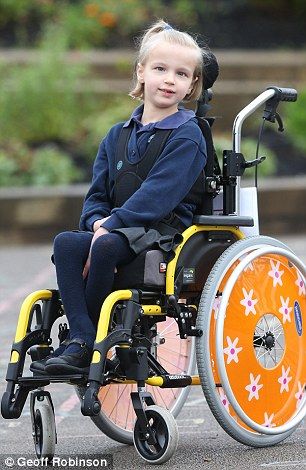
Last reviewed: June 2021
Back To Top
Recommended links
- Carer support (opens in a new window)
carergateway.gov.au
Related pages
- Disability and parenting support
- Early childhood intervention
- Your feelings about your child's disability
- What is a congenital disorder?
- Disability rights for children
Need more information?
Intellectual disability | Sydney Children's Hospitals Network
What is intellectual disability? A child with an intellectual disability learns and develops slower than other children
Read more on Sydney Children's Hospitals Network website
Intellectual disability: children & teens | Raising Children Network
Intellectual disability is a reduced ability to think and to learn new skills.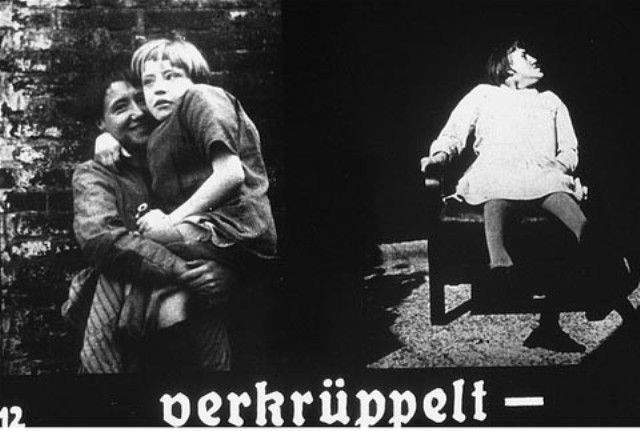 Here’s how to get support for children and teens with intellectual disability.
Here’s how to get support for children and teens with intellectual disability.
Read more on raisingchildren.net.au website
Learning disabilities: children & teens | Raising Children Network
Learning disabilities are problems with reading, spelling or maths. Read how to support children with learning disabilities so they can learn successfully.
Read more on raisingchildren.net.au website
Autism & disability services for children | Raising Children Network
Disability services can be confusing. Our guide to services for children with disability, autism and other additional needs helps you navigate the system.
Read more on raisingchildren.net.au website
Law & rights for children with disability | Raising Children Network
Here you’ll find information on disability rights and anti-discrimination law in Australia, as well as resources to help you find disability services.
Read more on raisingchildren.net.au website
NDIS plans & early childhood support | Raising Children Network
If your child is using the NDIS, you work with an NDIS representative to choose early childhood disability services to support your child’s development.
Read more on raisingchildren.net.au website
Dyslexia in children and teenagers | Raising Children Network
Dyslexia is a learning disability. Children with dyslexia have trouble with reading and spelling. Support helps children with dyslexia achieve and succeed.
Read more on raisingchildren.net.au website
Down syndrome in children: a guide | Raising Children Network
Down syndrome causes intellectual disability and other challenges.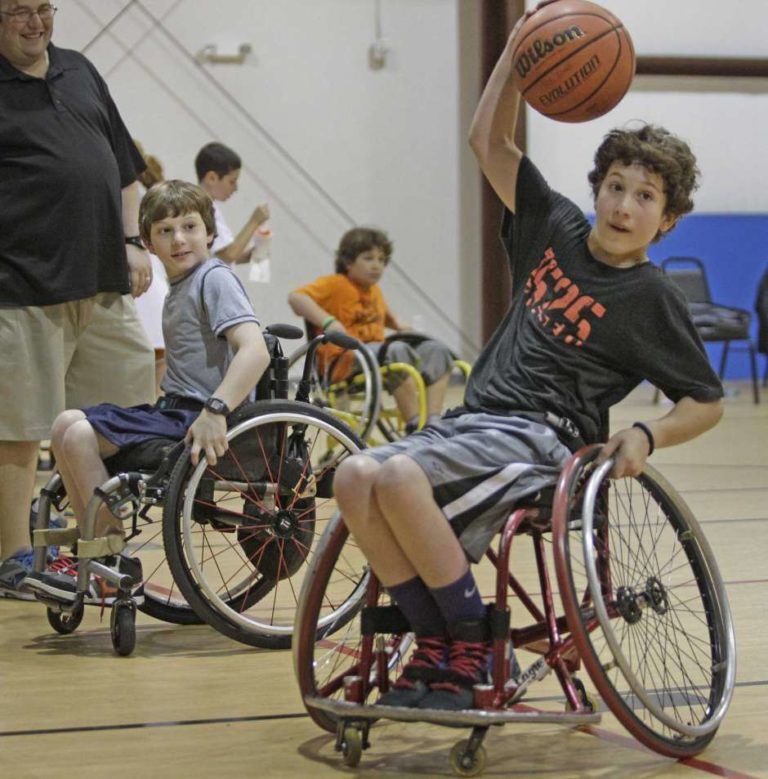 Early intervention can help children with Down syndrome reach their full potential.
Early intervention can help children with Down syndrome reach their full potential.
Read more on raisingchildren.net.au website
Child disability services & support: video | Raising Children Network
In this video, parents and child disability experts talk about disability services for children, funding, service providers, respite care and counselling.
Read more on raisingchildren.net.au website
Mental Health Intellectual Disability hub | Sydney Children's Hospitals Network
The Sydney Children’s Hospital Network Mental Health and Intellectual Disability (MHID) Hub is a state-wide tertiary service to improve the mental health of children and adolescents with intellectual disability and/or autism under 18 years of age
Read more on Sydney Children's Hospitals Network website
Disclaimer
Pregnancy, Birth and Baby is not responsible for the content and advertising on the external website you are now entering.
Need further advice or guidance from our maternal child health nurses?
1800 882 436
Video call
- Contact us
- About us
- A-Z topics
- Symptom Checker
- Service Finder
- Linking to us
- Information partners
- Terms of use
- Privacy
Pregnancy, Birth and Baby is funded by the Australian Government and operated by Healthdirect Australia.
Pregnancy, Birth and Baby is provided on behalf of the Department of Health
Pregnancy, Birth and Baby’s information and advice are developed and managed within a rigorous clinical governance framework. This website is certified by the Health On The Net (HON) foundation, the standard for trustworthy health information.
This site is protected by reCAPTCHA and the Google Privacy Policy and Terms of Service apply.
This information is for your general information and use only and is not intended to be used as medical advice and should not be used to diagnose, treat, cure or prevent any medical condition, nor should it be used for therapeutic purposes.
The information is not a substitute for independent professional advice and should not be used as an alternative to professional health care. If you have a particular medical problem, please consult a healthcare professional.
Except as permitted under the Copyright Act 1968, this publication or any part of it may not be reproduced, altered, adapted, stored and/or distributed in any form or by any means without the prior written permission of Healthdirect Australia.
Support this browser is being discontinued for Pregnancy, Birth and Baby
Support for this browser is being discontinued for this site
- Internet Explorer 11 and lower
We currently support Microsoft Edge, Chrome, Firefox and Safari.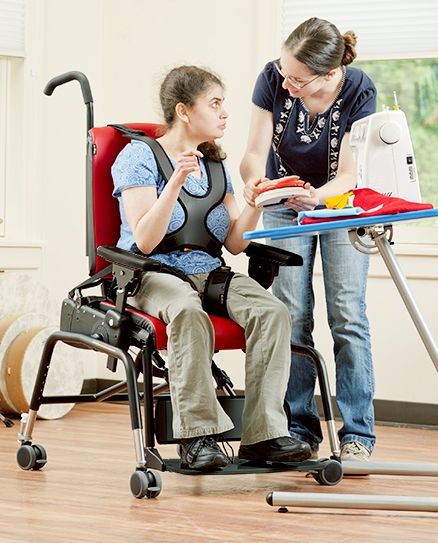 For more information, please visit the links below:
For more information, please visit the links below:
- Chrome by Google
- Firefox by Mozilla
- Microsoft Edge
- Safari by Apple
You are welcome to continue browsing this site with this browser. Some features, tools or interaction may not work correctly.
"Child with disabilities" - what does this status imply? – Department of Education of the Jewish Autonomous Region
, Parent lecture "Fundamentals of child psychology and pedagogy"
Special children have special rights. To use them, you need to get a certain status. What are the statuses, who assigns them and what rights do they give?
The Law on Education provides for two categories of students with special educational needs - children with disabilities and persons with disabilities (HIA).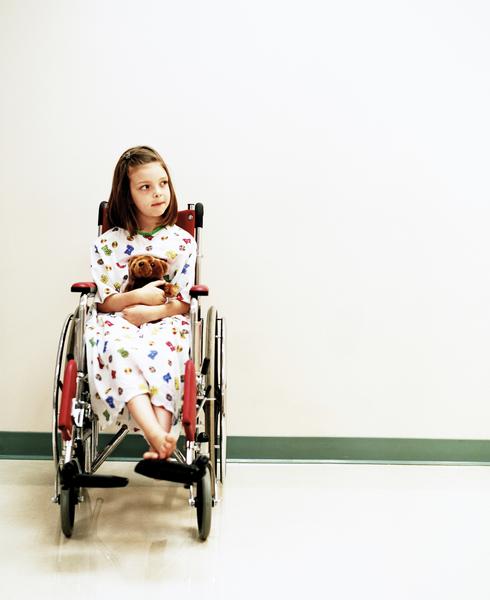 The conditions for recognizing a child as a disabled person and a person with disabilities are different, and the support measures that are provided to them are also different. Both terms are mentioned in the texts of the laws, but the status of a disabled child and a child with disabilities will not necessarily belong to the same person. The laws take into account the difference between the concepts of "HVD" and "disabled". nine0008
The conditions for recognizing a child as a disabled person and a person with disabilities are different, and the support measures that are provided to them are also different. Both terms are mentioned in the texts of the laws, but the status of a disabled child and a child with disabilities will not necessarily belong to the same person. The laws take into account the difference between the concepts of "HVD" and "disabled". nine0008
The concept of "Disabled child"
This category includes children under 18 years of age who have a disability, leading to a loss of social adaptation as a result of disruption of the body due to pathology.
The status of a disabled child is assigned by the Bureau of Medical and Social Expertise (ITU).
ITU issues a certificate of disability (the original certificate of disability is kept by the parents) and an individual rehabilitation or habilitation program (IPRA).
IPRA of a disabled child contains sections relating to medical, psychological and pedagogical, professional, social rehabilitation (or habilitation). The program also includes technical means of rehabilitation and rehabilitation services (TCP).
The program also includes technical means of rehabilitation and rehabilitation services (TCP).
The concept of "limited health opportunities"
A student with disabilities is an individual who has deficiencies in physical and (or) psychological development, confirmed by the psychological, medical and pedagogical commission and preventing education without creating special conditions (Article 2 of Federal Law-273 ). nine0008
The status of a child with disabilities is assigned by the Psychological, Medical and Pedagogical Commission (PMPC).
The group of people with disabilities (Art. 79 FZ-273) includes children with hearing, vision, severe speech, musculoskeletal disorders, autism spectrum disorders, mental retardation, mental retardation and others. There is no exhaustive list of diseases in the presence of which students are recognized as persons with disabilities.
The category “students with disabilities” was defined not from the point of view of health restrictions themselves, but from the point of view of the need to create special conditions for obtaining education, based on the decision of the collegial body - PMPK. nine0008
nine0008
What is the status difference?
The list of children belonging to the group of disabilities is not closed and, in addition, differs significantly from the restrictions on life activity, on the basis of which disability is established. A student with disabilities is a student who needs to create special conditions for obtaining, first of all, a quality affordable education. For example, a visually impaired child may have the status of a visually impaired child, since he needs special technical devices (magnifying loupes, etc.), manuals for studying at school. At the same time, such a child does not have such restrictions on life activity, in accordance with which the status of a disabled child is assigned. nine0008
Not every child with a disability needs special conditions for their education. For example, a child diagnosed with diabetes mellitus has the status of "disabled", but he does not need special educational conditions. Therefore, he does not have the status of "student with disabilities". In this case, he receives rehabilitation services not in education, but in other areas (health, social protection).
In this case, he receives rehabilitation services not in education, but in other areas (health, social protection).
At the same time, the same student can be both disabled and a person with disabilities. For example, a deaf child receives the status of a “disabled child” (parents have an ITU certificate of disability and an IPR), as well as the status of a “learner with disabilities” (there is a PMPK conclusion). nine0008
In this case, the section of the IPRA devoted to educational rehabilitation and the conclusion of the PMPK should contain the same wording as the conclusion of the PMPK.
Legal status of students with disabilities
- Pedagogical employees of educational organizations are required to take into account the peculiarities of the psychophysical development of students and their state of health, comply with the special conditions necessary for the education of persons with disabilities, interact on this issue with medical organizations. nine0047
- Students with disabilities living in an educational organization are fully supported by the state.
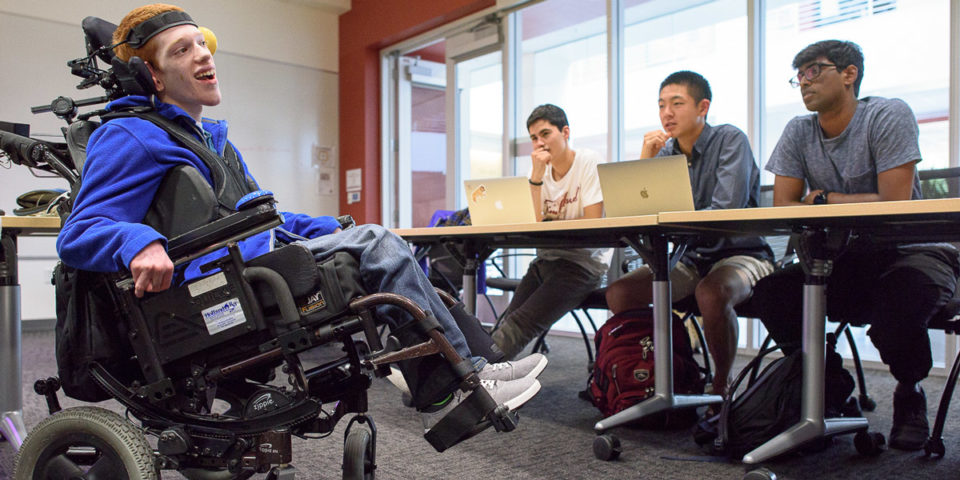 Those who do not live in such an organization are provided with free two meals a day.
Those who do not live in such an organization are provided with free two meals a day. - When receiving education, students with disabilities are provided free of charge with special textbooks and teaching aids, other educational literature, as well as the services of sign language and sign language interpreters (the measure is an expense obligation of the subject of the Russian Federation).
- The executive authorities of the constituent entities of the Russian Federation provide vocational training for students with disabilities (with various forms of mental retardation) who do not have a school education. nine0047
Frequently asked questions and answers to them
The most popular questions and answers to them.
Are the terms "disabled" and "person with disabilities" synonymous?
The object of attention of the law on education are 2 categories of students with special educational needs - children with disabilities and persons with disabilities (hereinafter - HIA).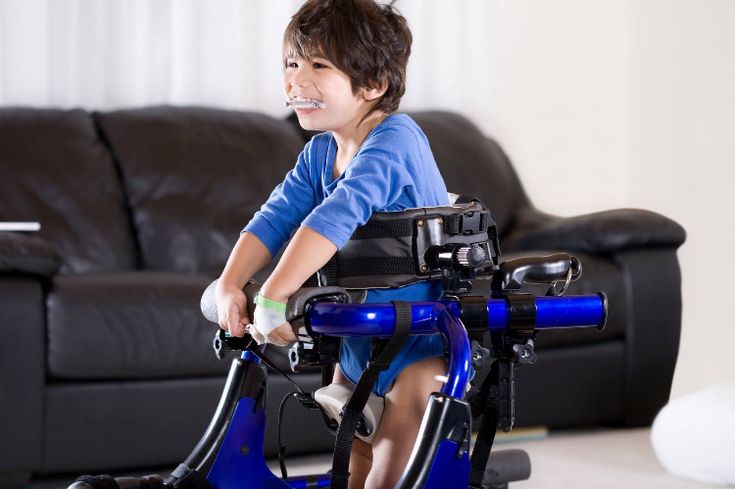 A disabled person (up to 18 years of age a disabled child) is a person who has a health disorder with a persistent disorder of body functions due to diseases, the consequences of injuries or defects, leading to a limitation of life and causing the need for his social protection (Federal Law "On the Social Protection of Disabled Persons in the Russian Federation"). Federation” dated 24 November 1995 No. 181-FZ, art. one). A student with disabilities is an individual who has deficiencies in physical and (or) psychological development, confirmed by the psychological, medical and pedagogical commission and preventing education without creating special conditions (paragraph 16 of Article 2 of the Federal Law of December 29, 2012 No. 273 -FZ "On Education in the Russian Federation"). The status of a disabled person (disabled child) is assigned by the Bureau of Medical and Social Expertise, the status of a child with disabilities is assigned by the Psychological, Medical and Pedagogical Commission.
A disabled person (up to 18 years of age a disabled child) is a person who has a health disorder with a persistent disorder of body functions due to diseases, the consequences of injuries or defects, leading to a limitation of life and causing the need for his social protection (Federal Law "On the Social Protection of Disabled Persons in the Russian Federation"). Federation” dated 24 November 1995 No. 181-FZ, art. one). A student with disabilities is an individual who has deficiencies in physical and (or) psychological development, confirmed by the psychological, medical and pedagogical commission and preventing education without creating special conditions (paragraph 16 of Article 2 of the Federal Law of December 29, 2012 No. 273 -FZ "On Education in the Russian Federation"). The status of a disabled person (disabled child) is assigned by the Bureau of Medical and Social Expertise, the status of a child with disabilities is assigned by the Psychological, Medical and Pedagogical Commission. There is no exhaustive list of diseases in the presence of which students are recognized with disabilities. The PMPK decides to issue an opinion collectively, taking into account the special educational needs of students and the individual situation of development. The activities of the psychological, medical and pedagogical commission are regulated by the order of the Ministry of Education and Science of Russia dated September 20, 2013 No. 1082 “On approval of the Regulations on the psychological, medical and pedagogical commission”. Thus, the category “students with disabilities” is defined not from the point of view of health restrictions themselves, but from the point of view of the need to create special conditions for obtaining education, based on the decision of the collegial body - PMPK. Not every child with a disability needs special conditions for their education. Then he, who is not studying with disabilities, receives rehabilitation services in other areas (health, social protection, but not education).
There is no exhaustive list of diseases in the presence of which students are recognized with disabilities. The PMPK decides to issue an opinion collectively, taking into account the special educational needs of students and the individual situation of development. The activities of the psychological, medical and pedagogical commission are regulated by the order of the Ministry of Education and Science of Russia dated September 20, 2013 No. 1082 “On approval of the Regulations on the psychological, medical and pedagogical commission”. Thus, the category “students with disabilities” is defined not from the point of view of health restrictions themselves, but from the point of view of the need to create special conditions for obtaining education, based on the decision of the collegial body - PMPK. Not every child with a disability needs special conditions for their education. Then he, who is not studying with disabilities, receives rehabilitation services in other areas (health, social protection, but not education).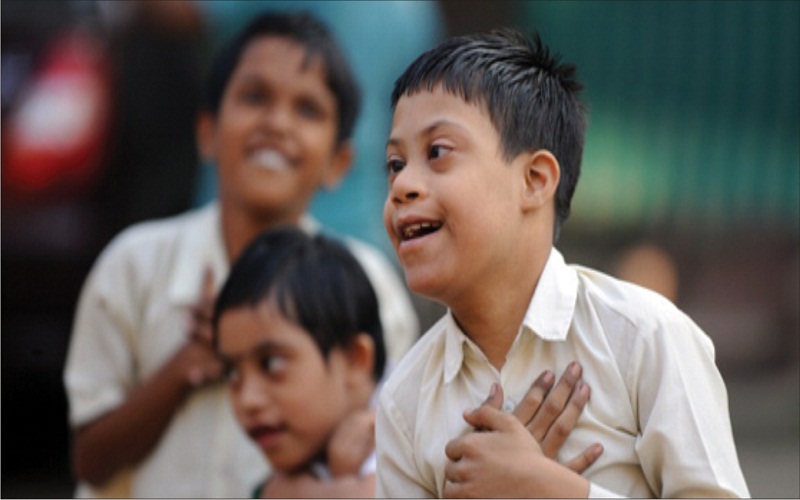 At the same time, the same student can be both a disabled person and a person with disabilities. In this case, he has both the conclusion of the PMPK and the IPRA of the disabled person, in which, in the section on educational rehabilitation, there should be a note about the need for educational rehabilitation. To do this, there is an order of the Ministry of Labor of Russia dated December 10, 2013 No. 723 "On the organization of work on interdepartmental interaction between federal state institutions of medical and social expertise with psychological, medical and pedagogical commissions." Accordingly, the disabled and persons with disabilities are not identical categories. nine0008
At the same time, the same student can be both a disabled person and a person with disabilities. In this case, he has both the conclusion of the PMPK and the IPRA of the disabled person, in which, in the section on educational rehabilitation, there should be a note about the need for educational rehabilitation. To do this, there is an order of the Ministry of Labor of Russia dated December 10, 2013 No. 723 "On the organization of work on interdepartmental interaction between federal state institutions of medical and social expertise with psychological, medical and pedagogical commissions." Accordingly, the disabled and persons with disabilities are not identical categories. nine0008
Is it possible to admit people with disabilities and persons with disabilities for training in vocational educational programs that impose requirements on the health of students?
Yes, reception is possible. However, they will not be able to practice. It is recommended that when persons with medical contraindications enter the relevant conditions and types of work, notify them in writing against the signature of the possible consequences (impossibility of internship and completion of training).

